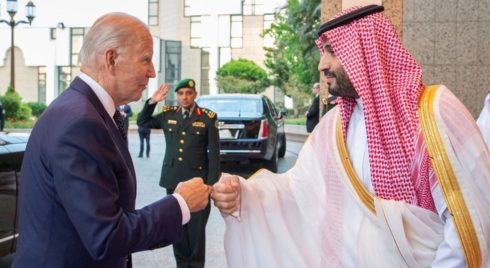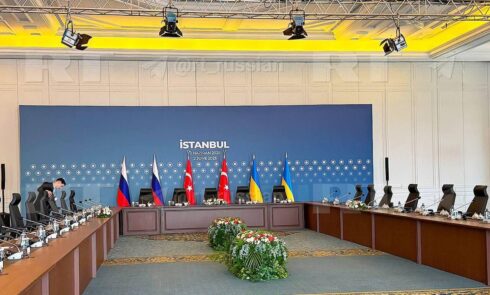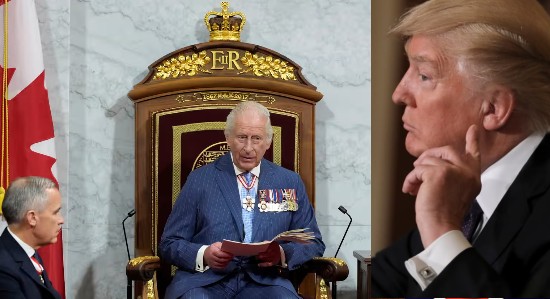The Biden the president of US is on the brink of finalizing a significant security treaty with Saudi Arabia, which would see the United States committing to defend the Gulf nation. This potential treaty is part of a broader effort to foster diplomatic relations between Riyadh and Israel. According to a report by the Wall Street Journal, the treaty, tentatively named the Strategic Alliance Agreement, would need to secure a two-thirds majority vote in the U.S. Senate, a challenging threshold that might only be achievable if linked to Israeli-Saudi normalization efforts.
U.S. and Saudi officials have been discussing this potential deal for several weeks, emphasizing its importance in regional geopolitics. The treaty is designed to enhance cooperation and ensure mutual security, much like the longstanding U.S.-Japan mutual security pact. This agreement aims to solidify the strategic partnership between the two nations, ensuring that any attack on Saudi Arabia would trigger a defensive response from the United States.
Broader Diplomatic and Security Objectives Of US
The potential U.S.-Saudi treaty is part of a larger package that includes several critical components. One of the most notable aspects is the inclusion of a U.S.-Saudi civil nuclear agreement. This pact would allow for the development of Saudi Arabia’s nuclear energy capabilities under strict U.S. oversight, ensuring the peaceful use of nuclear technology while preventing the proliferation of nuclear weapons.
Additionally, the agreement is aimed at advancing steps towards the establishment of a Palestinian state and ending the ongoing conflict in Gaza. Efforts to achieve a ceasefire in Gaza have been unsuccessful in recent months, and this treaty could provide a framework for lasting peace and stability in the region. By linking these broader diplomatic goals with the security treaty, the Biden administration hopes to garner the necessary support in the Senate and among key regional players.
Strategic Components and Geopolitical Implications
According to the Wall Street Journal, the draft treaty is modeled after the mutual security pact between the U.S. and Japan, which underscores a significant commitment to Saudi Arabia’s defense. In exchange for U.S. protection, Saudi Arabia would grant the U.S. access to its territory and airspace, enabling the protection of American interests and regional partners. This strategic alignment is intended not only to strengthen defense ties but also to curtail China’s influence in the region by restricting its ability to build military bases or engage in security cooperation with Riyadh.
The treaty is part of a broader initiative that includes a U.S.-Saudi civil nuclear pact, measures towards the establishment of a Palestinian state, and efforts to end the ongoing conflict in Gaza. Achieving these objectives could pave the way for a historic normalization of relations between Saudi Arabia and Israel, a prospect that has been a long-standing goal for U.S. foreign policy in the Middle East. However, securing the necessary two-thirds majority vote in the U.S. Senate for the treaty’s approval remains a formidable challenge, hinging on its association with the Israeli-Saudi normalization.
Implications for Regional Security and International Relations
The draft treaty would not only commit the U.S. to defend Saudi Arabia but also grant Washington significant strategic advantages. The United States would gain access to Saudi territory and airspace, enhancing its ability to protect its interests and those of its regional allies. This access is crucial for maintaining a robust military presence in the Middle East and countering potential threats from adversarial nations.
Moreover, the treaty includes provisions to limit Saudi Arabia’s security cooperation with China, reflecting broader U.S. concerns about Chinese influence in the region. By prohibiting the establishment of Chinese military bases in the kingdom, the treaty aims to strengthen Riyadh’s alignment with Washington and its Western allies. This strategic move underscores the United States’ commitment to countering China’s expanding footprint in the Middle East.
The potential U.S.-Saudi Strategic Alliance Agreement represents a pivotal moment in international relations, with far-reaching implications for regional security and diplomatic dynamics. The successful finalization and approval of this treaty could pave the way for enhanced cooperation, stability, and peace in the Middle East, while also reinforcing the United States’ strategic interests in the region.














